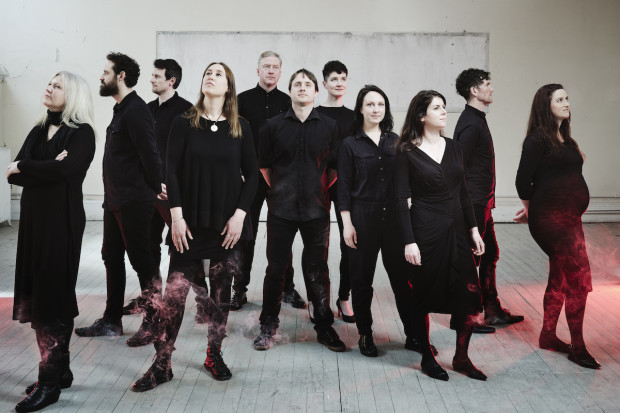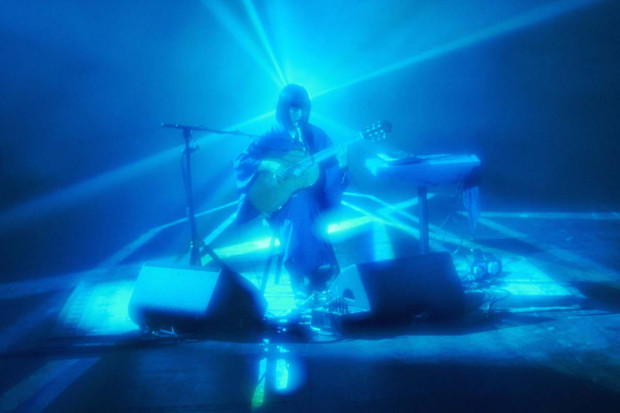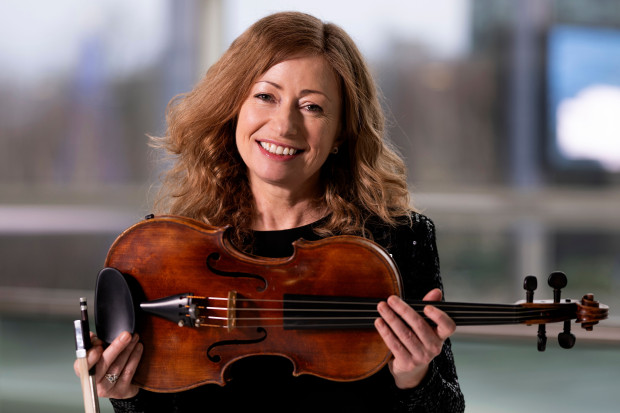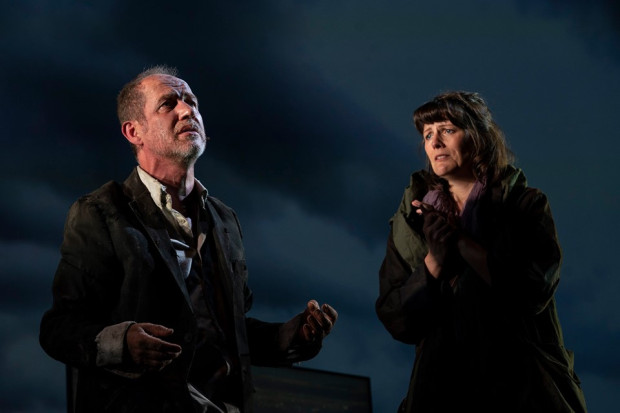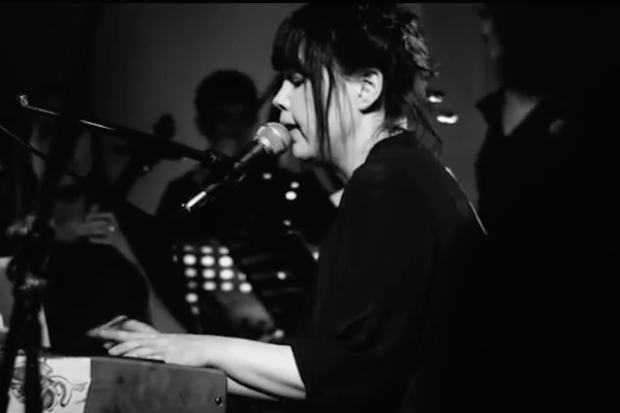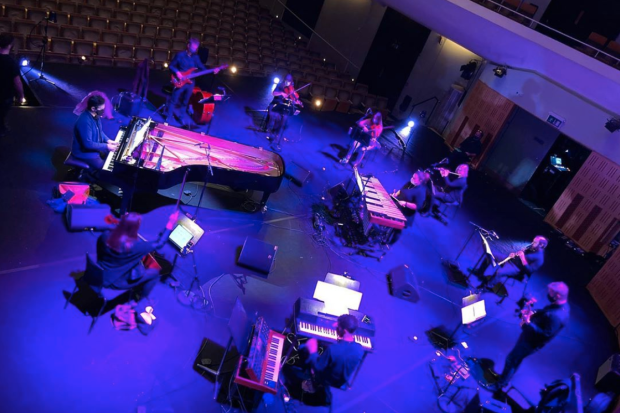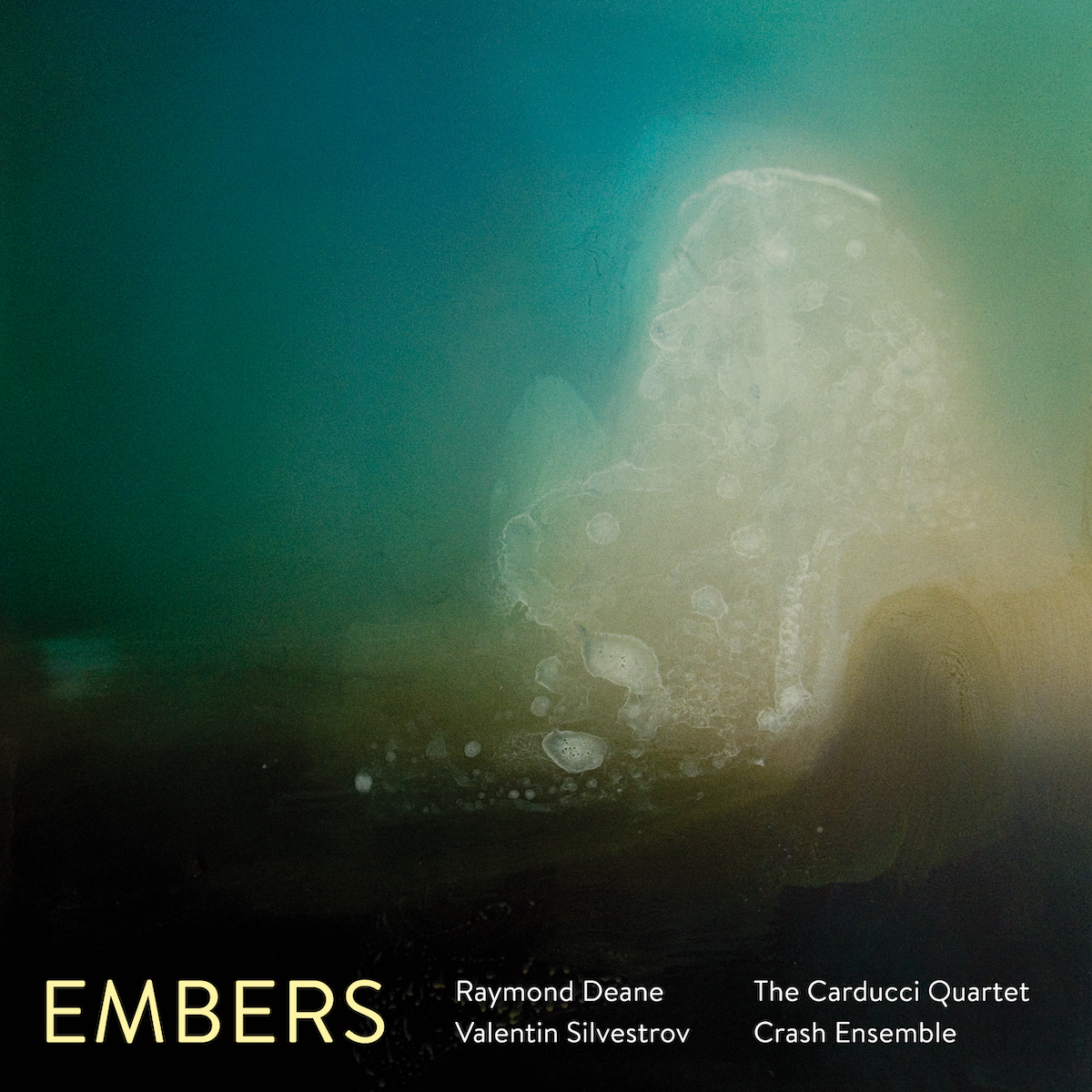
The art work for 'Embers' by David Quinn
A Society Rallying After the Silence
Embers is the title of the new album release from Louth Contemporary Music Society, which features three works: Valentin Silvestrov’s third string quartet as the centrepiece, bounded by Marthiya and Embers by Raymond Deane. Marthiya is performed by members of Crash Ensemble, while the others feature the Carducci Quartet.
Deane is not a composer who makes a secret of his politics. He is an outspoken activist and vocal on a number of issues, and is a canny enough thinker to know that, although the political element of his works isn’t always explicit, there is a political element to everything.
The string trio Marthiya (2005, rev. 2010), though, is explicitly political, having been informed by the 2003 invasion of Iraq and, according to the composer, ‘the wider carnage inflicted upon the Arab and Islamic world over the last century.’ The title refers to a form of Arabic and Persian elegiac poetry, and the tone of the work is certainly mournful, with moments of near-tonality drifting around the augmented triads at the core of the work. Notes a semitone apart stretch and yearn before collapsing together like an unstable atom.
Crash Ensemble sound excellent here, though the music is at times supremely challenging, with the very softest tremolos at one point, or the violin playing haunting harmonics high above the other instruments.
Silvestrov was one of the early guest composers at Louth Contemporary Music Festival, when he travelled to Ireland from his native Ukraine for two world premieres in a portrait concert in 2009. His third string quartet, dating from 2011, is dedicated to the Kronos Quartet but carries close links with Ireland: the composer describes the ‘Irish accents’ of the music and, in a note in the score, attributes his visit to Ireland and his meeting with Louth Contemporary Music Society director Eamonn Quinn as the spur that led him to complete the work.
But it shares a lot of DNA with his previous string quartets as well, in its touches of nostalgia and sentimentality butting up against darker, more brooding material, and even in musical motifs shared between the works.
The third quartet is written in seven movements, performed without a break. There is a dream-like logic to Silvestrov’s writing, almost a sense of restless sleep. It’s not that the music takes an unexpected turn off the path, but rather that the path itself has a different shape from what it initially seems. A melody that seems built around a G-major scale meanders downwards, a single F (rather than F sharp) rebalancing the whole phrase. The texture expands into a broad, Romantic soundscape, but continues expanding, the parts drifting away from each other, becoming sparse and detached.
The title track on the album, Deane’s Embers, predates Silvestrov’s string quartet by close to 40 years. Deane wrote this work for string quartet in 1973 and has since produced arrangements for piano trio and string orchestra, with the latter version featuring on RTÉ’s Composing the Island album. As a result, it’s both his most frequently performed work and his earliest significant one.
Embers was named, according to Deane, as an ‘implicit homage’ to the Samuel Beckett radio play of the same name, though by the composer’s admission they bear no direct relation. Rather, the work for string quartet glows softly, variably, before inevitably igniting – briefly – and fading away. (Deane is a skilled composer of musical imagery.)
In another reality, Deane might have been called a minimalist; his works often turn on a small amount of musical material explored in great detail. Even in Embers, written so early in Deane’s career, the handful of motifs are distinct and clear enough to be recognisable and easy to trace through the work.
Although both Embers (in its original quartet format) and Silvestrov’s third string quartet are available to hear online as recordings of live performances, this album marks their first release in a recorded setting, and the Carducci Quartet’s sound – dry and dark, and intimate without becoming Romantic – is an excellent fit for both works despite their stylistic differences.
Society rallying
Embers is the second release in Louth Contemporary Music Society’s ‘Out of Silence’ series of album releases during Covid, following December’s Meadow, dedicated to the 32-minute long Linda Catlin Smith work of the same title. Meadow has won high praise internationally, though I failed to be won over to it much more than when I first heard it live in 2019, when I found it pretty but too long. Nevertheless, it has an undeniable beauty and charm in its stillness.
Silence seems to be a preoccupation of Louth Contemporary Music Society’s director, Eamonn Quinn. The 2017 festival was also named for silence, and the earlier album Floating, Drifting included music by the Wandelweiser composer Michael Pisaro, who has also been a guest composer at the Louth Contemporary Music Festival. The Society’s programmes and choices of composer are invariably diverse, but if there is a broad link it is in the intimacy and quiet of the work. The cancellation of last year’s festival (its name couldn’t have been more ironic: The Gathering) must have been a hard blow, but it is good to see the Society rallying, and turning to recording to break out of silence, however quietly.
Embers will be released on Friday 5 March 2021. Visit or www.louthcms.org/new-lcms-cd-embers/ or https://louthcontemporarymusicsociety.bandcamp.com/
Published on 4 March 2021
Brendan Finan is a teacher and writer. Visit www.brendanfinan.net.












